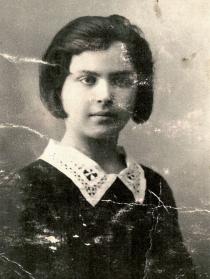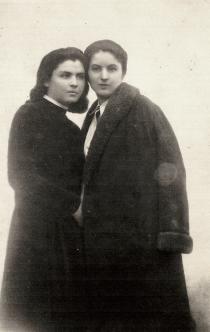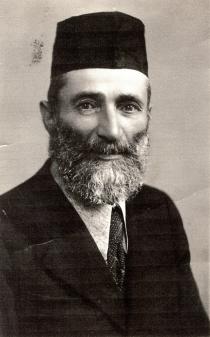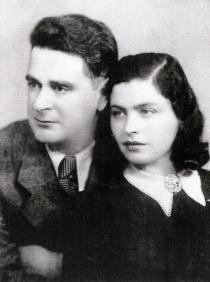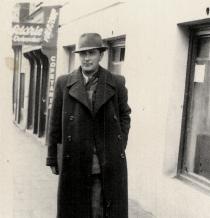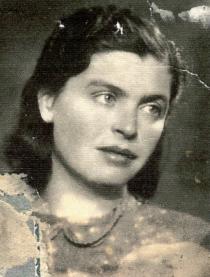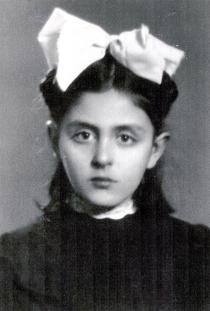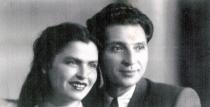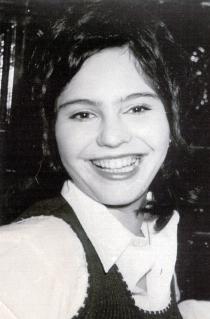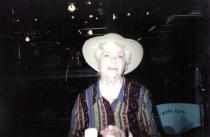My father Moshe-Joseph Waisman. The photo was taken in Chernovtsy in 1936 when my father visited me.
My father left the village at 15. He lived and worked in stores in many towns in Moldavia. Later my father became 'a neymener wald' [Yiddish for assistant forest administrator]. Foresters and accountants reported to my father. He was also responsible for the woodcutting in forests. He supervised the removal of dry branches from trees. I visited my father at his workplace in the forest twice. I saw him weigh a cart full of dry branches on ground scales. He received payments from locals for these branches. At the end of each month he gave this money to the administrator. The administrator and my father were Jews, janitors and branch cutters were non-Jews. The owner of the forest was a Jew, too. His last name was Waisman, but he wasn't related to us. When the removal of dry branches was over in one area they moved to another. My father stayed in nearby villages. During his stay in Slobodzeya my father met my future mother, Feige-Shyfra Berkovich. They got married in 1896. They had their wedding in Slobodzeya, a beautiful village with many gardens and trees.
After my father got married he continued traveling from one town to another, and his family followed him. I remember the Regat, Tansa and Basesti in Romania. My family observed all traditions and celebrated holidays. Even in villages with few Jews they rented a house from Romanians, whitewashed it and arranged a praying house. Jews got together in a minyan. My father's Hebrew was the best and he always read prayers at such gatherings. He organized activities of this kind. He spent all his free time reading religious books alone. He always wore a yarmulka.
My father prayed every morning. He prayed facing the wall and always had a band wrapped around his hand. Once I ran into the house shouting, 'Father, do you know??', and he just murmured, 'Nu'. [Yiddish for 'no talking'. During prayers that is the only word allowed to be said]. We, children, were supposed to wait until he was done with his praying to ask our questions. My father had a seat of his own in the synagogue in our village. He paid for it, and nobody else had a right to sit there. We only spoke Yiddish in the family. Nobody was allowed to do any work on Saturdays; all the food was cooked on Fridays. We did all washing and cleaning on Fridays, because we were supposed to relax and rest on Saturdays. We could take a rest in the house or yard. Everyone rested on Saturdays.
At Sukkot my father used to make a sukkah. We had our meals in this sukkah during the 8 days of Sukkot. At Shavuot my mother baked cottage cheese and cooked green soup. There was no meat on our menu on this day, I don't know why, but such was the rule.

